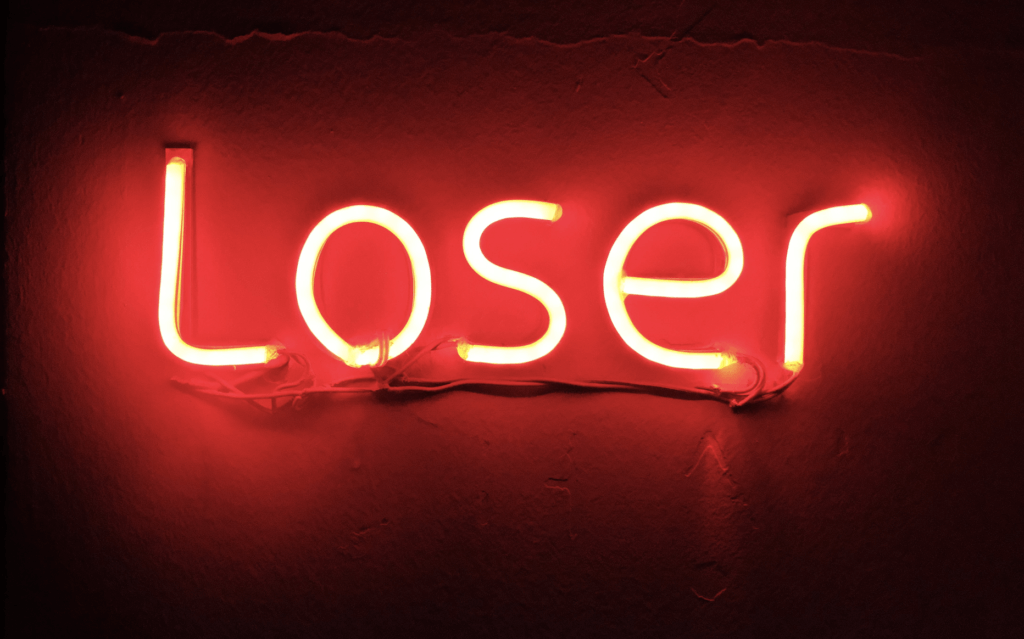Lawyers, especially litigators, apparently have anger issues. Read a dozen profiles of litigators on law firm websites, and you’re sure to see many describe themselves as “aggressive.”
Just once it would be refreshing for a litigator’s profile to say something like “Hailey’s clients appreciate her passive approach to litigation.”
But no, lawyers apparently believe that clients want litigators who are aggressive (whatever that means). I’ve always wondered about this, but it’s been on my mind more than usual because I recently got a good result for a client by taking a passive approach.
This raises an important question: are “aggressive” litigators actually better for clients? Do they get better results? After accumulating 20+ years of anecdotal evidence, I think I have some answers.
But first we must define what it means for a lawyer to be “aggressive.”
Aggressive lawyer personalities
It could just mean an aggressive personality. You know the type because you’ve seen it in TV shows and movies. Pounds the table. Raises his voice. Won’t back down from any confrontation. “We’ll see you in court!”
This type has become even more prominent because it’s the kind of lawyer favored by a certain very famous client. Lawyers Michael Cohen and Marc Kasowitz are two obvious examples.
Here’s Cohen talking to a journalist who was about to publish a story unfavorable to his client: “Tread very f***ing lightly because what I’m going to do to you is going to be f***ing disgusting. Do you understand me? Don’t think you can hide behind your pen because it’s not going to happen. I’m more than happy to discuss it with your attorney . . . because, mother***er, you’re going to need it.”
Kasowitz is also a tough talker. When a stranger sent him a critical email, Kasowitz responded with these choice words: “I’m on you now. You are f***ing with me now. Let’s see who you are. Watch your back, b**ch. . . . You are such a piece of s**t. Call me. Don’t be afraid, you piece of s**t. Stand up. If you don’t call, you’re just afraid.”
I’d say those two are pretty “aggressive” (at least by phone and email).
But when lawyers market themselves as “aggressive,” they’re not just saying “I know how to act like a jerk.” They’re also talking about tactics, especially when their targets are more genteel and “sophisticated” clients, like big companies that have their own in-house lawyers. These clients want—or think they want—a lawyer who will take an aggressive approach to a lawsuit.
Of course, an aggressive personality does not necessarily mean an aggressive approach. There are plenty of litigators who have aggressive personalities but demure when it comes to taking action.
For example, remember all those F-bombs Michael Cohen dropped to pressure a journalist not to publish a story? The story was published. There was no lawsuit. And when Kasowitz fired off a confrontational letter to the New York Times threatening a defamation lawsuit, I waited eagerly to see what the lawsuit would say. I’m still waiting.
No, an aggressive personality doesn’t necessarily mean aggressive tactics. And the converse is also true. A lawyer can have the personality of Mr. Rogers and pursue aggressive tactics, smiling politely the whole time.
I imagine the notoriously button-downed Bob Mueller is one of these types: a mild-mannered gentleman who will gut you like a fish in court. (Just ask Paul Manafort if he misses his Persian rugs sitting in a jail cell.)
On the other hand, there does seem to be some connection between an aggressive personality and an aggressive approach. For starters, people with more aggressive personalities are probably more likely to pick litigation as a practice area. And I would be willing to bet that all else being equal, a litigator with a more aggressive personality is a little more likely to favor aggressive tactics.
But here again, it depends on how we define aggressive. I say an “aggressive” approach to litigation essentially means two things: having courage and being proactive.
The aggressive approach to litigation
Courage in litigation translates to a willingness to assert “creative” factual or legal theories and a willingness to fight out disputes in court, even if there’s a decent chance you’re going to lose.
But does it really take courage to do these things? The lawyer is trying to make money, and if anything, taking these risks means more billable hours.
True, but if there’s one thing that motivates lawyers more than money, it’s fear. Specifically, it’s the fear of losing, fear of getting embarrassed in the courtroom, even the plain-old fear of looking like you don’t know what you’re doing. These fears are what will stop litigators from taking a stand for their clients.
The second part of an aggressive approach is being proactive. This is the opposite of being reactive. You won’t find the adjective “reactive” in any lawyer profiles, but the reactive approach to litigation is common. A reactive litigator just reacts to events in the lawsuit, particularly deadlines and actions taken by opposing counsel.

Unfortunately, you often see lawyers who combine a reactive approach with an aggressive personality. They lurch from one crisis to another. They may go weeks without devoting any attention to the case, and then when a deadline is a few days away, they suddenly go on the warpath.
Many litigators get by and make a good living with this approach, especially if they master the art of appearing “aggressive,” managing client expectations, and taking credit when good results happen.
But this “aggressive-reactive” combination is not optimal for getting good results.
Fewer litigators are genuinely proactive, because being proactive requires discipline, and discipline is well, you know, boring. Being proactive requires a plan, a methodology. “I love it when a plan comes together.” Otherwise you’re just bouncing from one crisis to another. “Putting out fires” is not being proactive.
In short, I define an aggressive approach to litigation as being courageous and proactive. But we still haven’t answered the question: is an aggressive litigator better for the client?
Pros and cons of the “aggressive” litigator
Here we must be careful to correct for our biases. Lawyers with aggressive personalities are likely to believe that having an aggressive personality makes a lawyer more effective, and vice-versa.
What type am I? A guy with a highly aggressive personality is not going to sit down and write an article over-analyzing the concept of aggressiveness, so you already know the answer. Don’t get me wrong, I like to duke it out in court. But that’s because I like competing and, honestly, “performing” for a crowd, not because I like personal confrontation.
So, I want to adjust for my own bias and give aggressive personalities their due. I’ll acknowledge three main advantages to an aggressive personality in litigation.
First is the simple fact that aggressive people often get their way—especially with little things—simply because dealing with them is a pain in the ass. If you know opposing counsel is a jerk, you’re more likely to say “ok, fine, we’ll do the deposition at your office.”
Second is the fact that appearance can be reality in litigation. The vast majority of cases settle, and settlement expectations can be shaped by personalities. A lawyer with a genuinely aggressive personality is probably better at putting on a show that conveys the appearance that “we’re not afraid to fight this out in court.”
Third, there is some connection between anger and courage. Maybe anger is the wrong word. I’m thinking of what the Greeks called thumos, which might be translated as “spiritedness.” It’s the feeling that takes over when someone has physically threatened your loved ones or, in this case, financially threatened your client. Generally, a more spirited lawyer will be more willing to take a risk to defend a client.
Yes, in some ways an aggressive personality can make a litigator more effective, but overall, I think the benefits are minor. And there are drawbacks.
The biggest problem with lawyers who have “aggressive” personalities is that they’re not in control of their emotions. They let pride and anger cloud their judgment, and that causes mistakes. An angry lawyer can do OK if he’s just blocking and tackling. But do you want your quarterback to be angry? Or do you want a Joe Montana with ice in his veins? (Younger readers, you could substitute Aaron Rodgers or Tom Brady.)
On the whole, I think it’s a wash. An aggressive personality will be a benefit in some litigation situations and a hindrance in others. If anything, it’s a slight negative. In any case, I tend to favor lawyers just being themselves. If there’s one personality trait that will make you unpersuasive in litigation, it’s being a fake.
But what about aggressive litigation tactics? Regardless of personality, will a lawyer who takes an aggressive approach to litigation get better results?
If we stick with my definition of aggressive as being courageous and proactive, then I think the answer is a tentative yes. (How’s that for a non-aggressive answer?)
Litigation is not a tennis match (no offense to tennis). It’s more like tackle football. A lawyer who isn’t willing to get his nose bloodied is less likely to get good results. You need the courage to take the risk of losing. And proactive lawyers who push a lawsuit forward are usually going to get better results than those who just react to what others do.
Being aggressive in the right way at the right time
But what about the recent experience I mentioned? Does my successful experiment with a “passive” approach call into question the aggressive approach to litigation?

To some extent, yes. Here was the situation. My client was a business that got dragged into a lawsuit with multiple defendants. The plaintiff’s damage theory against my client was fundamentally flawed. We pointed that out early in the case, and the plaintiff indicated he might just voluntarily dismiss my client from the case.
So I waited. The last thing I wanted to do was bill my client a lot of money for taking discovery that could end up being unnecessary.
But you have to understand. This was hard for me. I wanted to do something.
Weeks went by with no activity. I couldn’t stand it. I suggested asking for the plaintiff’s deposition to try to prompt some action. But my client wanted to sit tight and wait. So I waited some more.
A couple weeks later the plaintiff dismissed my client from the case. It was over. Naturally, I took credit for our wise strategy of doing nothing.
But seriously, in hindsight my client made the right call. If I had been aggressive, it would have cost the client more money, and who knows, it might have irritated the plaintiff to the point of keeping my client in the lawsuit just to be difficult.
That got me thinking. Truth is, an effective litigator is aggressive about the right things, for the right reason, at the right time.
That reminded me of something I read in college. This is precisely what Aristotle said about the virtue of bravery.
You know Aristotle. He’s the guy who said: “We are what we repeatedly do. Excellence, then, is not an act, but a habit.”[1] This is the most popular philosophical quote in pop culture outside of Nietzche’s “that which does not kill me makes me stronger.”
But I digress. Aristotle had a lot to say about bravery in his Nichomachean Ethics, including this: “Whoever stands firm against the right things and fears the right things, for the right end, in the right way, at the right time, and is correspondingly confident, is the brave person; for the brave person’s actions and feelings reflect what something is worth and what reason [prescribes].”
This is a strikingly sober definition of a brave person. One might even object that this takes all the zing out of bravery. Imagine Mel Gibson in Braveheart exhorting his men to “stand firm for the right end, in the right way!” It doesn’t exactly get the blood boiling.
But Aristotle understood this. He did not want to reduce bravery to just another form of knowledge, as he said Socrates did. Instead he tried to strike a balance. He wanted to distinguish the virtue of bravery from raw emotion, but without denying the physical and emotional nature of bravery.
“Brave people act because of what is fine,” Aristotle said, “and their emotion cooperates with them.” In contrast, people who “fight because of their feelings, not because of what is fine or as reason [prescribes]” have “something similar” to bravery. This bravery caused by emotion is “the most natural sort,” but it is not true bravery until “decision and the goal have been added to it.”
In other words, the right kind of brave person doesn’t seek out danger just for the thrill of it, but when achieving the right goal requires bravery, the brave person’s emotions cooperate.
I think that’s a pretty good definition of the kind of “aggressive” litigator a client should want. If I have to take an aggressive position or take a risk in court to defend a client’s interests, I want my emotions to cooperate. But I want reason, not emotion, to drive the decision and the goal.
Because losing in court may not kill me, but it doesn’t make my client stronger.
_________________________________________________________________

These are his opinions, not the opinions of his firm or clients, so don’t cite part of this post against him in an actual case. Every case is different, so don’t rely on this post as legal advice for your case.
[1] This quote is actually misattributed to Aristotle, as explained here, but it’s close enough to the point Aristotle was making.




Comments:
Appreciate you blogginng this
How interesting that you talk about how an aggressive personality in a lawyer can still mean that they will have a gentle approach. My son needs to apply for workers’ compensation for an injury that happened this last week. We want to find a great lawyer in our area for this!
Good article, Zach. How would you balance or consider your definition of aggressiveness with a lawyer’s required (and personal) commitment to ethical duty to serve the client’s best interest? Or does “ethics” enter into an attorney’s decision whether to act in aggressive manner at all? My train of thought is whether highly aggressive tactics (bullying?) may win the day, but is that considered the ethical approach?
Thanks, Aaron. Great question. I think this gets to the distinction between legal ethics and “professionalism.” There are many kinds of “aggressive” conduct I would consider unprofessional, but not necessarily a violation of the rules of ethics that govern lawyers. Shouting profanities at opposing counsel in an effort to intimidate would probably fit into this category. On the other hand, abusive conduct directed at a person unrepresented by counsel could cross the line into an ethical violation, depending on the circumstances.